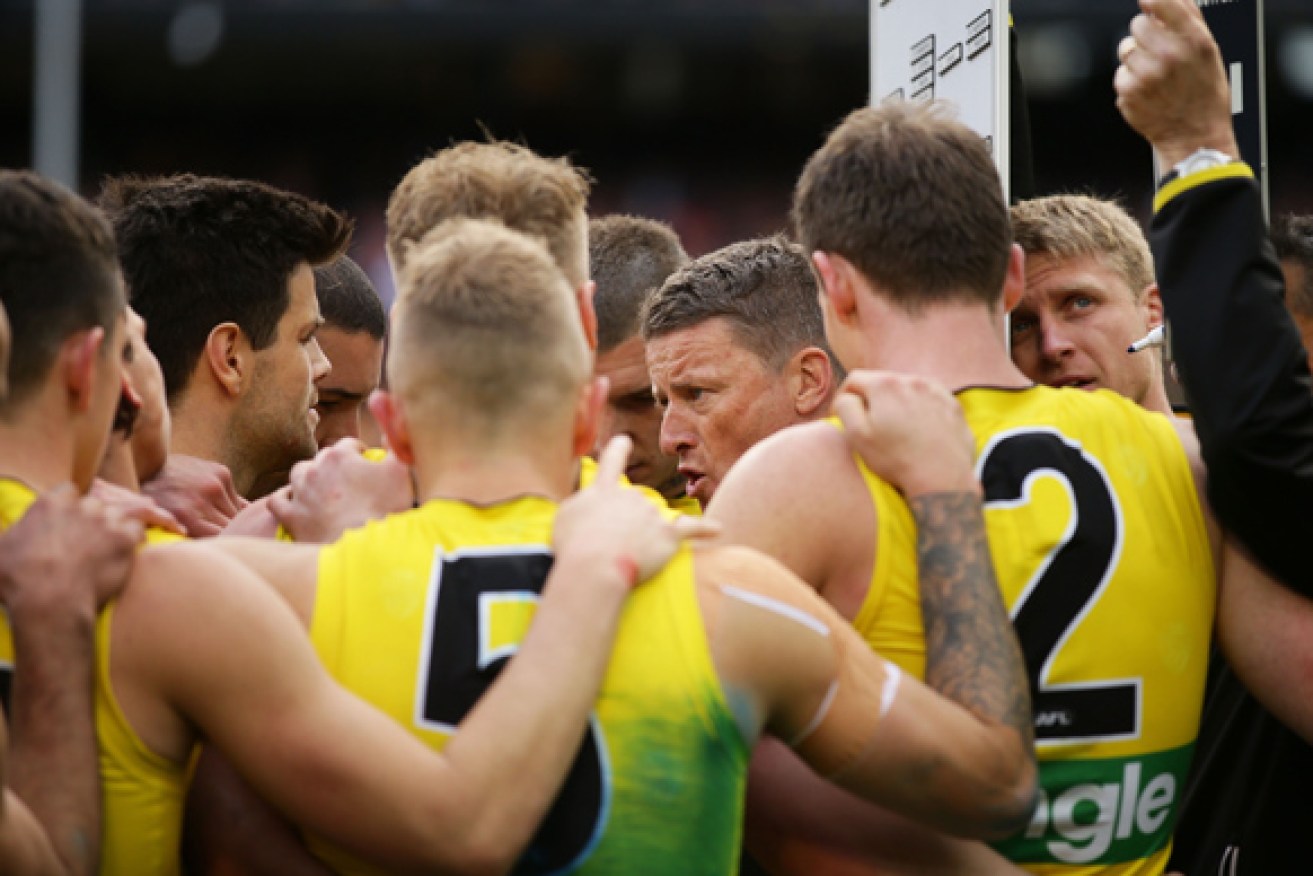Nathan Burke: Clubs, not AFL, hold key to better football


Damien Hardwick has had success with an exciting Richmond team. Photo: Getty
What’s more important? Playing to win, even if it means ugly football, or making sure the game is aesthetically healthy?
Most AFL coaches would give the politically correct answer and say that both are important. However in their hearts they know the true answer is winning, no matter how ugly.
And you can understand why, because a coach is hired and paid to ensure his team wins.
If he doesn’t win, more often than not he gets the boot.
Considering only two of the 18 coaches are recycled (John Worsfold and Ross Lyon) you can understand why the top men want to hang on to the job they have.
While there are some coaches who genuinely believe that they have a wider commitment to the game, when push comes to shove, winning ugly is preferred over than not winning at all.
To me this is a problem and despite the AFL trying to stage-manage the game with constant rule changes, it is not up to head office to make it happen.
The answer lies purely at club level, on the shoulders of the 18 coaches. These are the men who dictate exactly how the game is played. Not the AFL, not the umpires, not the Match Review Officer.
If there are 20 players around a stoppage it is because the coach has instructed every one of them to be there.
If you get frustrated when the forward lines are empty, blame the coach because he is the one who has ordered this to occur.
If you hate it when players go sideways, it is because the coach wants him too.
Obviously, as long as the coaches are rewarded and remunerated solely on their win-loss ratio this will continue.
After all, they all have families and reputations to look after. Playing pretty and losing will not keep them employed.
Just ask ex-Essendon coach Matthew Knights, whose attacking brand of football was exciting to watch but eventually the win-loss ratio got him.
If the above is true then how do we get the coaches to change? This is also up to the clubs, but with the board of directors.
The directors set club goals and then hold the people employed by the club accountable for achieving them.
Most boards are made up of business people, with maybe one or two football players. Directors are normally smart enough to realise that they don’t have the expertise to coach a football team and leave that to the experts.
Although I am reluctant to have a bunch of lawyers, accountants and CEOs involved in football matters, I think they might have to in order to ensure the game is protected.
Coaches need to play a style of football that their members want to watch.
When boards set targets for the coach, simply demanding them to improve win-loss ratios is no longer good enough.
They must also dictate that the coach’s duty is to develop a brand of football that is attractive to their supporter base.
If they don’t like those targets then don’t take the job.
If boards reward coaches for playing attacking, attractive football just as much as they do winning football, then the game will change.
Most importantly, the AFL can concentrate on administering the game, not trying to change it with unnecessary, confusing and invasive new rules.
Coaches are human, they want to have success and share it. If instructed to change by their employer, they will listen and the game itself could also change for the better.
Nathan Burke is a former St Kilda captain who played 323 AFL games, winning three Trevor Barker Awards as best-and-fairest player.








